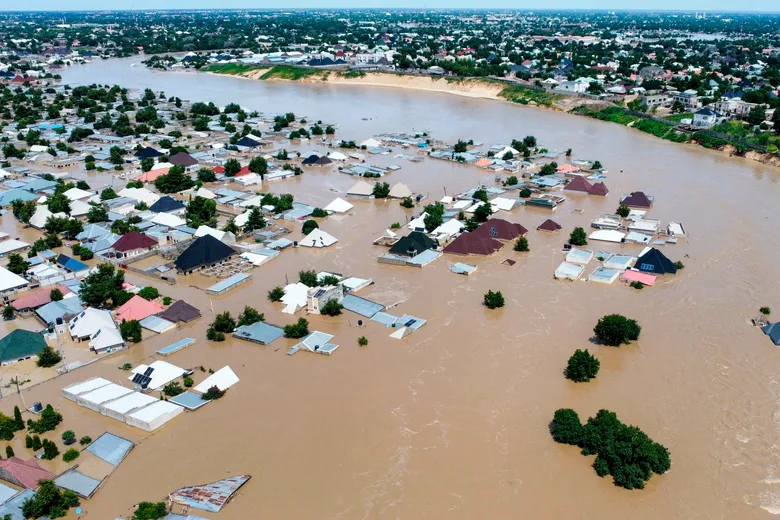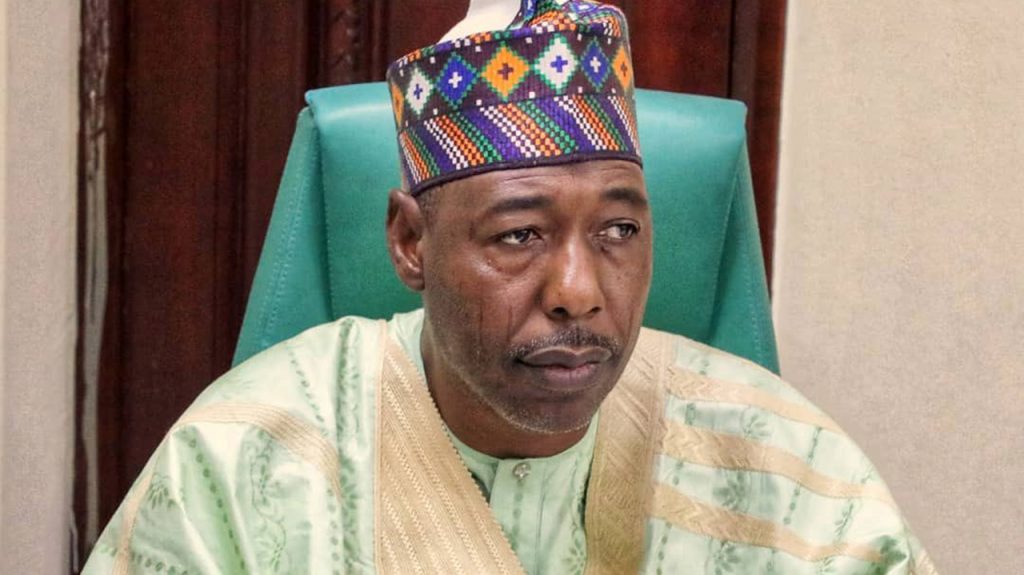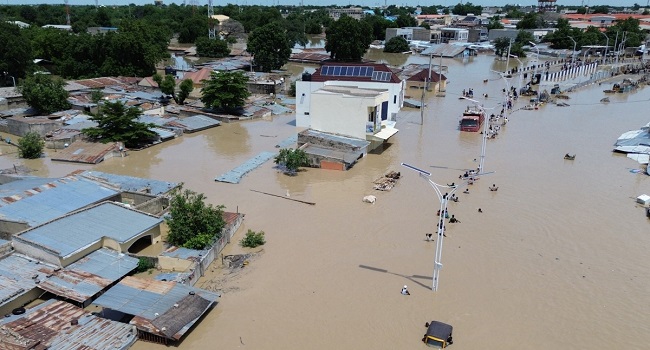The World Health Organisation (WHO) has expressed deep concern over the recent flooding in Borno State, Nigeria, which has displaced numerous communities and inundated parts of Maiduguri.
Dr. Kazadi Molumbo, WHO’s Country Representative for Nigeria, led a delegation to the region to assess the situation and offer support to those affected.
Dr. Molumbo described the difficult conditions in camps where many mothers and children are now living without access to their homes. He highlighted the urgent need for aid, revealing that 14 health facilities had been cut off and several laboratories impacted by the disaster.
The WHO has activated an emergency response mechanism in collaboration with the UN Country Team, coordinated by the Office for the Coordination of Humanitarian Affairs (OCHA). Dr. Molumbo confirmed that the WHO would lead the health response, working alongside agencies such as the World Food Programme (WFP) and UNICEF, which are focusing on nutrition and water, sanitation, and hygiene (WASH) initiatives.

He also praised the leadership of Borno State’s Governor, Professor Babagana Zulum, and the State’s Health Commissioner, Professor Baba Mallam Gana, for their swift action in responding to the crisis. “We are here to support them in managing this unprecedented disaster,” Dr. Molumbo affirmed.
Borno’s Health Commissioner, Professor Baba Mallam Gana, described the severity of the flooding, which occurred after the Aloe Dam, a critical water source, failed, leaving around 70% of Maiduguri submerged. “This disaster is unlike anything we’ve seen before,” he said, noting the widespread disruption to healthcare facilities and personnel.

Professor Gana expressed gratitude for Governor Zulum’s leadership in responding quickly to the disaster, as well as for the support from WHO, UNICEF, and the International Committee of the Red Cross (ICRC). He emphasised the immediate needs for shelter, food, and healthcare services and called for long-term infrastructure development to accommodate Maiduguri’s growing population, now nearing four million.
He also stressed the importance of safeguarding women and children, who make up the majority of those displaced, by ensuring access to healthcare and essential vaccinations to prevent outbreaks of diseases like diarrhoea.
The Borno State government reassured the displaced of its commitment to supporting them. Since taking office, Governor Zulum has resettled over 2.6 million internally displaced persons (IDPs), and plans are in place to assist those affected by this latest disaster.
The WHO and its partners remain committed to helping Borno State recover from the floods and ensuring the health and safety of those displaced by the disaster.

